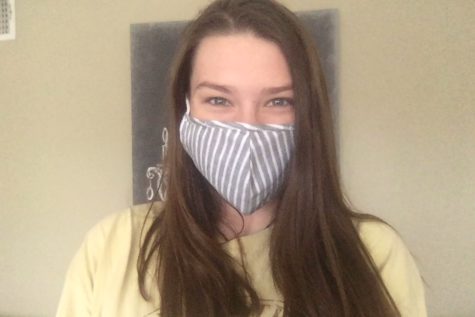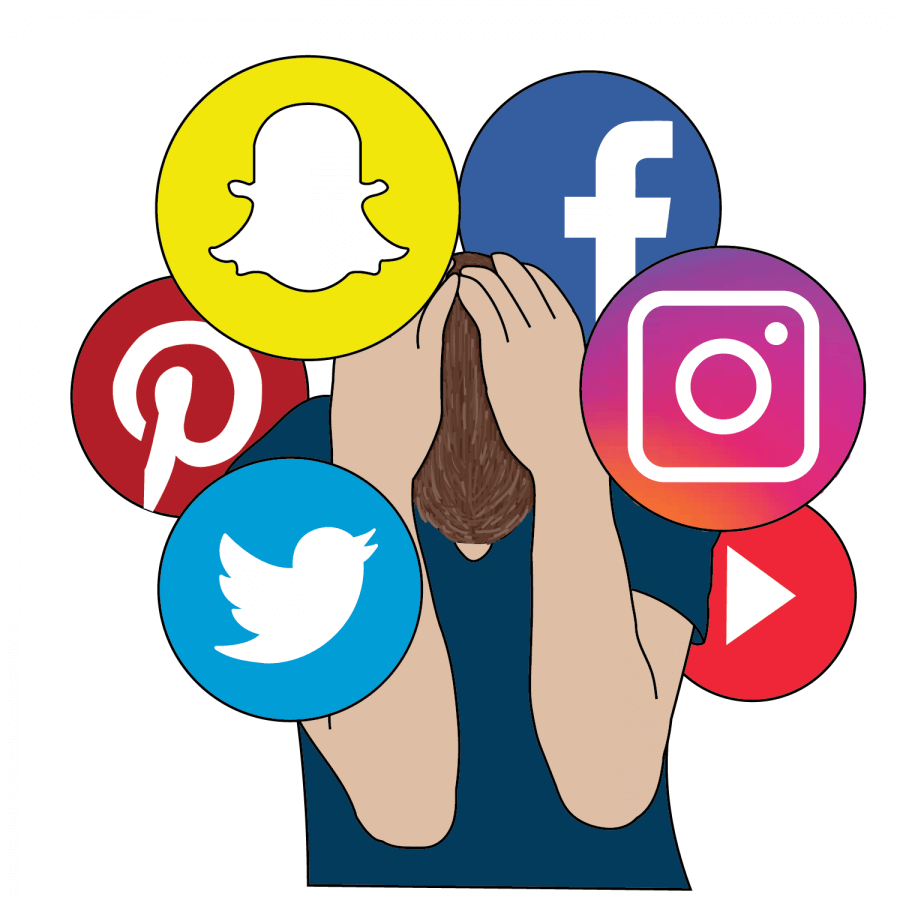The Side of Social Media That We’re Looking At But Not Seeing
Fans on Twitter recently called out Kylie Jenner for photoshopping her leg to look slimmer in a poolside bikini picture. That’s okay though because she probably made roughly $1 million for just pressing “post.”
With such high rewards for a single pinch of two fingers around an already slim and perfectly normal thigh, stars such as Jenner are having a bigger impact on social media users than they know.
There’s an ugly side to social media that we’re looking at every single day but not seeing.
Who’s Using It That Much?
It’s safe to say that social media users would downplay just how much time they spend scrolling through various platforms. It’s natural, though. Most people would probably not want to admit to spending hours a day staring at pictures of other people, most of whom they probably don’t even know personally.
But here’s the ugly truth: In We Are Social’s annual Digital report, they found that a whopping 4.20 billion people, 53.6% of the earth’s population, are active social media users, a number that has increased by 490 million over the last year.
They also found that users between the ages of 16-64 spend 6 hours and 54 minutes on the internet every day with 2 hours and 25 minutes going to social media usage alone. Keep in mind that this data is limited to those users above 16 years of age. This is because most social media platforms have an age requirement of 16 for users, so this data doesn’t even account for the users who aren’t supposed to be there.
We Are Social also reveals that, on average, 1.3 million new users join a social media platform every day. This comes out to roughly 15 new users every second.
A “Social Media Fact Sheet” report done in 2019 by Pew Research Center also found that 74% of Facebook users, 61% of Snapchat users, 63% of Instagram users, and 51% of YouTube users engaged with the respective platform every single day.
There’s no way to avoid the statistics. The average user is spending hours every day looking at social media, and those numbers probably won’t be going down anytime soon. With millions of new users joining the online world daily, usage will only increase. So, what does this mean?
Bigger Audience Means Bigger Impact
The staggering statistics regarding social media usage point to one thing. Users such as Kylie Jenner, who claims 223 million followers on Instagram alone, aren’t going to stop posting anytime soon. And with a million-dollar incentive for each post, she has no reason to (BBC).
But what does it mean for users who see people post pictures of their pinched thighs and tucked tummies? When we are repeatedly exposed to something, we are impacted, influenced, and ultimately changed by it.
Such is the case with social media.
Look a Little Closer
If we really stepped back and reflected on what we see on social media, we would be shocked at just how much it actually impacts us.
A size 00 TikTok dancer might influence you to do an ab workout or two. A beautiful foyer in a mansion with a crystal chandelier might inspire you to stay a little later at work tomorrow. A happy couple drinking champagne might make you want to binge eat ice cream and cry to your mom on the phone all night.
Whatever it may be, social media impacts its users every day, and its effect on mental health is a crisis.
Recent research conducted by the McLean School of Medicine discovered that social media is addictive. Using it releases dopamine, the feel-good chemical in the brain, which is why users keep coming back for more.
Basically, we upload a picture that we have deemed as “worthy” in hopes of likes and comments. McLean relates this to a slot machine. We risk in hopes of a reward in return; in this case, that reward is validation.
Picture this: A 16-year-old uploads a picture to Instagram. They like the picture and the way they look in it and want to show it off. They press “post” and anxiously refresh the notification page. But something’s wrong. “Why is no one liking the picture?” “Why have I only received 5 likes in an hour when Addison Rae and Bryce Hall get thousands in a matter of seconds?”
The critique begins. The 16-year-old thinks, “Maybe it’s because she’s skinny, and I’m not. Yep, I see where I look fat in this picture now.” “Maybe it’s because he has a six-pack and toned arms, and I don’t. Yep, I see where I look scrawny in this picture now.”
What happened to the once attractive picture that the 16-year-old wanted his or her friends to see? They compared themselves to someone else and now they aren’t good enough.
Mclean further suggests that “Apps that provide the user with airbrushing, teeth whitening, and more filters are easy to find and easier to use. It’s not only celebrities who look perfect—it’s everyone. When there’s a filter applied to the digital world, it can be hard for teens to tell what’s real and what isn’t, which comes at a difficult time for them physically and emotionally.”
The act of comparison has now significantly impacted the once confident 16-year-old. They now feel as if they aren’t good enough because they were exposed to a validated standard; a standard that probably isn’t even real.
This exposure can lead to anxiety, depression and overall negative self-image. Social media users are encouraged to be unrealistic in order to be good enough, pretty enough or smart enough.
The Reality
The reality of social media is that it’s simply not real, no matter how much we want it to be. We desperately want to think that if we only work hard enough, we will have what others have, but that’s not the reality we should focus on.
Just as Kylie Jenner pinched her thigh, that TikTok dancer from earlier may have drawn on her waist definition using a contour kit and the right lighting. That mansion may have been downloaded from a quick Google images search. That happy couple may be miserable off camera.
We may never know people outside of their Instagram posts, so we should never use a filtered photo to judge.
The point is that the absence of ourselves in other people is what makes us so special.

Mollie Pinion was born and raised in Greenville, Mississippi. She expresses, “I’ve been in the Delta my whole life.” Mollie is a senior at Delta...



